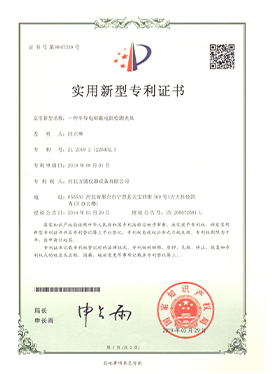Exporters of Electrical Resistance Testing Equipment for Quality Assurance and Safety Standards
Electrical Resistance Tester Exporter A Vital Tool for Quality Assurance
In today's rapidly advancing technological landscape, ensuring the reliability and safety of electrical equipment is paramount. One indispensable tool in maintaining electrical safety standards is the electrical resistance tester. As global markets expand, the demand for these testing devices continues to rise, leading to a growing need for reputable electrical resistance tester exporters. This article explores the significance of electrical resistance testers, their applications, and key considerations for exporting them effectively.
Understanding Electrical Resistance Testers
Electrical resistance testers, commonly known as insulation resistance testers or megohmmeters, are devices used to measure the resistance of electrical insulation materials. These testers are crucial in assessing the integrity of wiring, cables, and other electrical components. By applying a specific voltage, usually in the range of 250V to 5kV, the tester measures the resistance offered by the insulation. A high resistance value indicates good insulation, while a low value may signal potential hazards such as short circuits or equipment failures.
Applications Across Industries
The applications of electrical resistance testers are extensive and span various industries. In the electrical and electronics sector, these testers are used to ensure that machinery, generators, transformers, and circuit breakers operate safely and efficiently. In the construction industry, they play a critical role in testing wiring installations to prevent electrical hazards in homes and commercial buildings. Additionally, industries such as manufacturing, telecommunications, and renewable energy heavily rely on these testers to maintain equipment and ensure operational integrity.
The Growing Demand for Export
As businesses worldwide increasingly prioritize safety and reliability, the demand for electrical resistance testers has surged. This trend presents lucrative opportunities for exporters. The global market for electrical testing equipment is expected to grow steadily, driven by a rise in infrastructure investments and the need for regular maintenance of electrical equipment. Exporters who can provide high-quality, reliable, and innovative testing solutions will find abundant prospects in this expanding market.
Key Considerations for Exporting
electrical resistance tester exporter

Exporting electrical resistance testers requires careful attention to several key factors
1. Product Quality and Compliance Ensuring that the testers meet international quality standards is imperative. Exporters should focus on obtaining relevant certifications, such as ISO and CE markings, which demonstrate compliance with stringent safety and performance regulations.
2. Understanding Market Needs Different regions may have varying requirements and preferences when it comes to electrical testing equipment. Conducting thorough market research can help exporters tailor their products to meet specific customer needs, such as voltage ranges, portability, and user-friendly interfaces.
3. Building Relationships with Distributors Establishing strong partnerships with local distributors is essential for successful export operations. Distributors possess valuable insights into local markets and can help navigate regulatory requirements, ensuring smoother entry into new regions.
4. Effective Logistics Management Efficient logistics play a critical role in the export process. Exporters should invest in reliable shipping methods and supply chain management practices to guarantee timely delivery of products to international customers.
5. Customer Support and Training Providing excellent customer support and training can differentiate exporters from competitors. Offering comprehensive manuals, online resources, and training sessions can enhance customer satisfaction and trust in the product.
Conclusion
As the global market for electrical resistance testers continues to grow, exporters have a prime opportunity to capitalize on this demand. By focusing on product quality, understanding market needs, building strong distributor relationships, and providing excellent customer support, exporters can establish a robust presence in this sector. Ultimately, electrical resistance testers not only play a crucial role in ensuring electrical safety and reliability but also represent a significant business opportunity for exporters in an evolving global landscape. As companies strive to achieve the highest safety standards, the importance of reliable testing equipment will only increase, solidifying the position of electrical resistance testers in the marketplace.
-
Why the Conductor Resistance Constant Temperature Measurement Machine Redefines Precision
NewsJun.20,2025
-
Reliable Testing Starts Here: Why the High Insulation Resistance Measuring Instrument Is a Must-Have
NewsJun.20,2025
-
Flexible Cable Flexing Test Equipment: The Precision Standard for Cable Durability and Performance Testing
NewsJun.20,2025
-
Digital Measurement Projector: Precision Visualization for Modern Manufacturing
NewsJun.20,2025
-
Computer Control Electronic Tensile Tester: Precision and Power for the Modern Metal Industry
NewsJun.20,2025
-
Cable Spark Tester: Your Ultimate Insulation Assurance for Wire and Cable Testing
NewsJun.20,2025
 Copyright © 2025 Hebei Fangyuan Instrument & Equipment Co.,Ltd. All Rights Reserved. Sitemap | Privacy Policy
Copyright © 2025 Hebei Fangyuan Instrument & Equipment Co.,Ltd. All Rights Reserved. Sitemap | Privacy Policy
